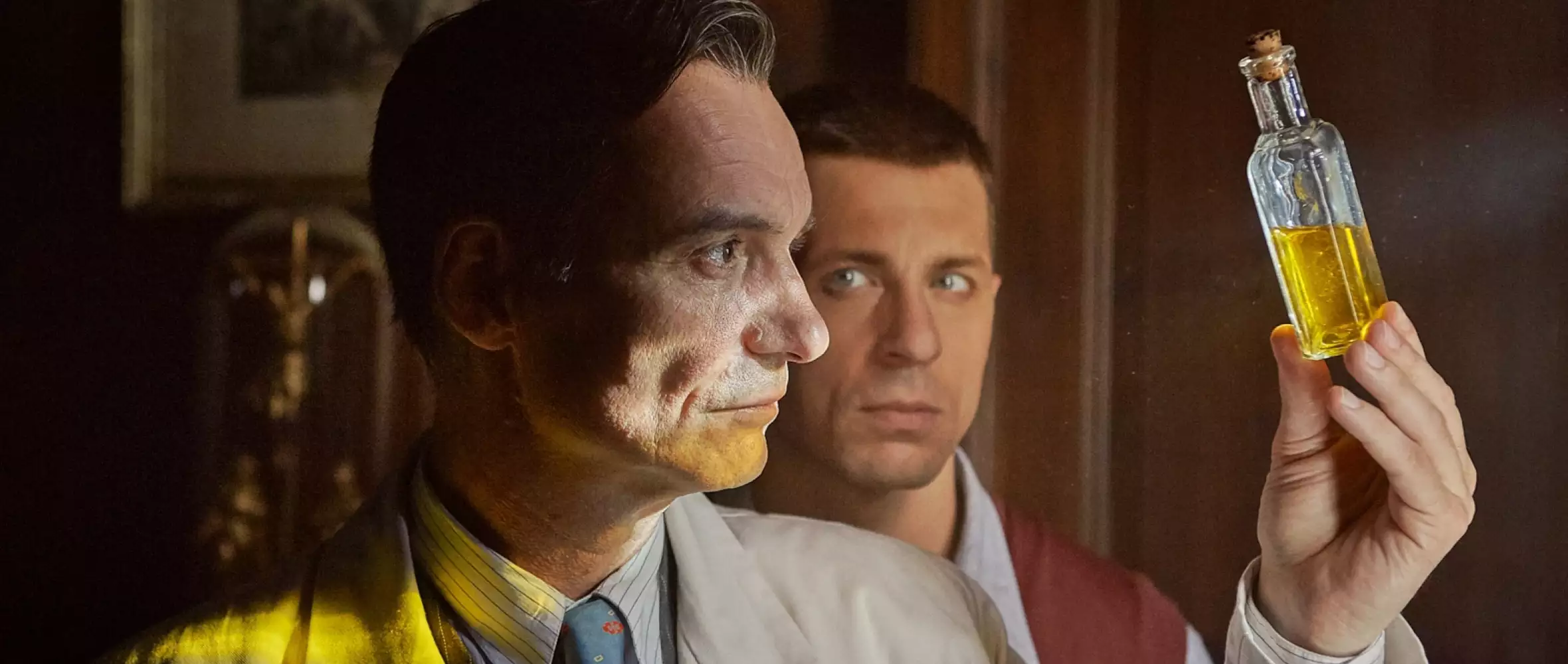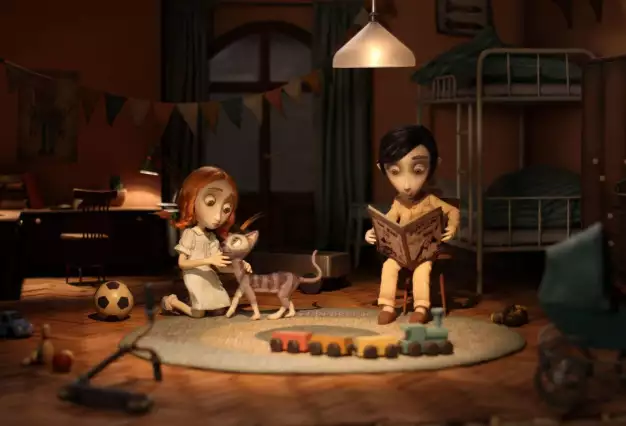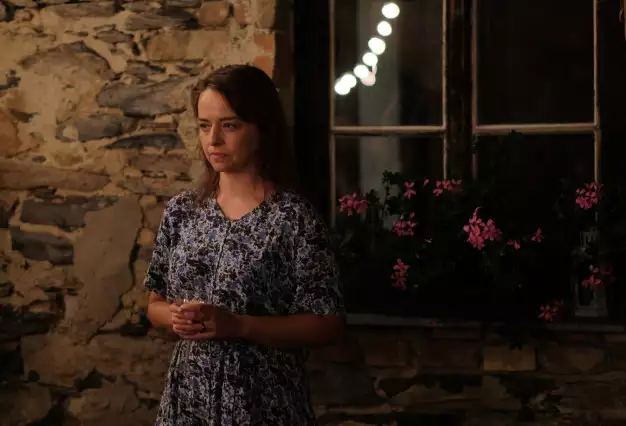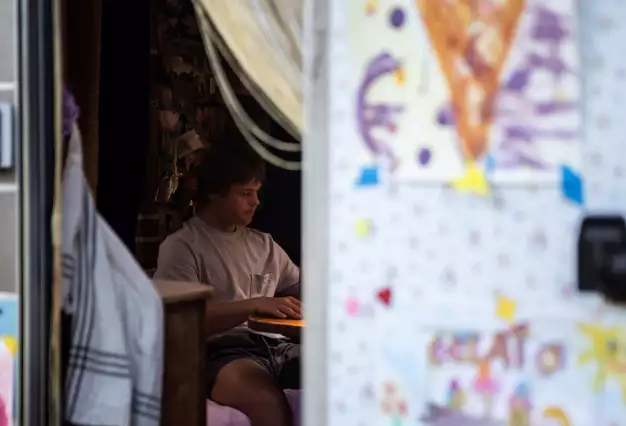
29 June 2019
A Powerful Healer Fights His Own Demons
Agnieszka Holland Shoots Charlatan
A Powerful Healer Fights His Own Demons
Agnieszka Holland Shoots Charlatan

The almost forgotten story of Czech healer Jan Mikolášek, who cured millions even as he suffered under both Nazi and Communist rule.
Article by Pavel Sladký for CZECH FILM magazine / Summer 2019
No sooner had veteran Polish director Agnieszka Holland premiered her latest feature, Mr. Jones, at the Berlinale earlier this year than she went straight onto the set of a new period piece: Charlatan, the true story of Czech healer Jan Mikolášek, who cured five million people in the first half of the 20th century, despite lacking any formal medical education.
Mikolášek healed celebrities in the 1930s, Nazi officers in the 1940s, and saved the life of Czechoslovakia’s Communist president Antonín Zápotocký in the 1950s. In the eyes of Holland and her collaborator, Czech Lion–winning screenwriter Marek Epstein, Mikolášek was an extraordinary figure, blessed with a gift for healing, yet fighting inner demons. In their film, he will be played by Ivan Trojan, one of the Czech Republic’s most acclaimed actors, a six-time Czech Lion winner, and his 18-year-old son Josef Trojan, who will portray the young Mikolášek onscreen.
“Mikolášek didn’t use shamanism, rituals, or hypnosis. His approach was based on rational medical grounds, and he was one of the greatest experts in herbal medicine. He helped so many people,” Holland said when we sat down with her a few days before production on the film began. “For many, he was like a saint. People would line up to see him. But healing was also a cure for himself. Without it his life would have been miserable. When war and politics got in the way of his mission, he lost an important dimension of his life. He was also probably having a love affair with his assistant, though his homosexuality was never confirmed. In general, there was just a lot of tension in his life.”
A Healer Who Undressed His Patients and Made Them Human Again
Epstein, who wrote the screenplay, agrees that Mikolášek was a complex personality. “There is no doubt that he did a lot of good and saved many lives. Yet there were darker corners in his soul that I needed to map and understand.
These shadows are outlined in the memories that we took the liberty of incorporating into our story. Whether or not people perceive it from our narrative, for me Mikolášek was a man searching for love in himself and his surroundings all his life. Unfortunately, he wasn’t always able to find it.”
Although Charlatan’s plot traces Mikolášek’s life over five decades, the main focus will be on the dark era of the ’50s, when the Communist regime put him on trial following the death of President Antonín Zápotocký in 1957, despite the president’s gratitude to Mikolášek for saving his life from gangrene, which he contracted during World War II, in Sachsenhausen concentration camp.
“Historical accuracy is not that important for me in this story. What’s important is the character’s inner truth,” Holland explains. “It’s also partly the story of a conformist, because he was that too. His passion for healing, and for keeping his power, were so great that he sacrificed his political opinions. He knew he needed to play the game to survive, and he managed to do so for quite a long time. He’s a survivor, a classic Czech character,” Holland says with a smile. “He survived not only for himself, but also for others. What happened to him opens a lot of questions for the contemporary world.”
The director says the fact that Mikolášek’s story has almost been forgotten and different sources vary in their approach to him represents an opportunity, offering a wide range of interpretation, the possibility for fiction and mystery.
“Almost everything about Mikolášek is remarkable,” says Epstein, one of the most prolific screenwriters in the Czech Republic over the past decade. “His uncanny ability to diagnose urine, his stubbornness in avoiding convention under every system, even as those systems sought to exploit, then destroy him. His gift gave him undeniable advantages, yet it also led him dangerously close to the edge. He cured famous figures in democratic Czechoslovakia, officers of fascist Germany, and leaders of Communist Czechoslovakia. He undressed his patients and made them human again. Healing was his destiny. His private life offers a classic storyline with a tragic outcome.”
Czech Film Crews Admired for Combination of Freedom and Professionalism
Holland, who studied at the FAMU film school in Prague in the ’60s, is known for directing the films Total Eclipse, Spoor, In Darkness, Europa Europa, as well as TV hits like House of Cards and Treme. She loves coming back to the Czech Republic, where she is admired by critics and audiences alike — especially for her HBO TV miniseries Burning Bush, the story of the political intrigue and fight for freedom in Communist Czechoslovakia following the death of Jan Palach, the young student who set himself on fire in Prague in January 1969.
“I wasn’t planning on shooting another bio-pic or period drama when the producer Šárka Cimbalová approached me, but the script had such tremendous style and mystery that it drew me in,” said Holland. “Plus Burning Bush was a very happy and inspiring shoot, in 2013. Some of the crew I know already from that, and some are new, which is a very good balance. In general I like the way Czech crews work. It’s a combination of trust, free thinking, and an ability to react quickly to changing conditions, but at the same time very precisely organized, which is based on a wealth of experience with both local productions and U.S. or Western movies and TV series. It’s truly a great combination.”
Language Is the Music of the Story
“Our goal this time is to try to find a very simple way of filming, and break the conventional way of storytelling,” Holland says.
As for the lead roles, she says she immediately thought of Ivan Trojan, one of the Czech Republic’s most sought-after actors. Then she also decided to take his son Josef on board. “It’s a miracle, having these two men embody the same character. I’m looking forward to the family dynamics on set. Will the father be domineering, because of all his experience? Will the son rebel? I’m curious to see.”
The film is shot in Czech, because, according to Holland, the language is the music of the story. “We need to stay truthful to the identity of the story and place. Earlier in my career, I did a movie about Poland in English, but I always felt it was unnatural. And I definitely dislike those euro-pudding productions. The story changes if you change the language.”
Charlatan is a coproduction between the Czech Republic, Ireland, Poland, and Slovakia. The film is produced by Šárka Cimbalová and Kevan Van Thompson of Marlene Film Production, and coproduced by Mike Downey (Film & Music Entertainment) from Ireland, and Klaudia Śmieja-Rostworowska from Madants, Poland. Additional coproducers: Czech Television, Barrandov Studio, and Radio and Television Slovakia.
The film has a total budget of €3 million, with support from the Czech Film Fund of €512,692. It was presented as a selected project at the Berlinale Co-production Market in 2016.
Films Boutique is handling the sales. The premiere is slated for spring 2020.




